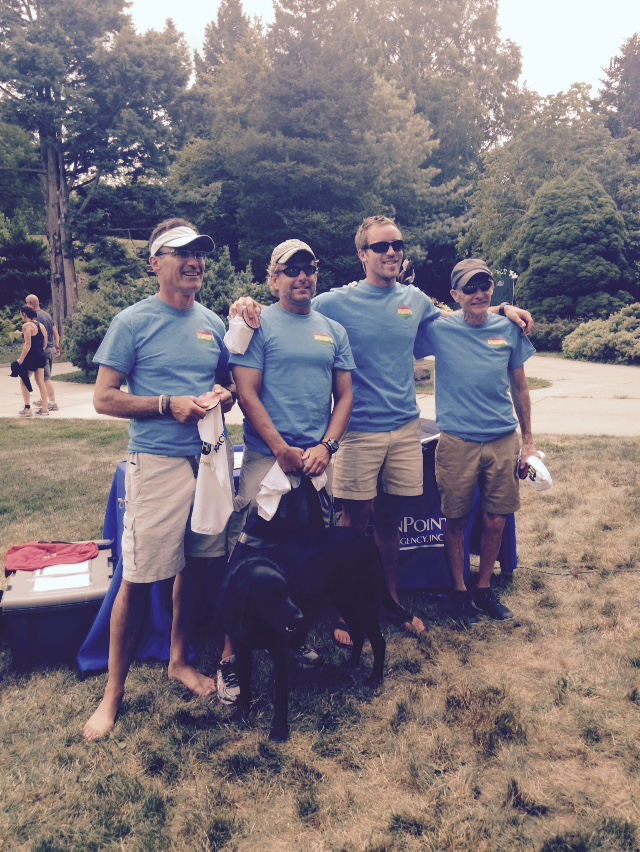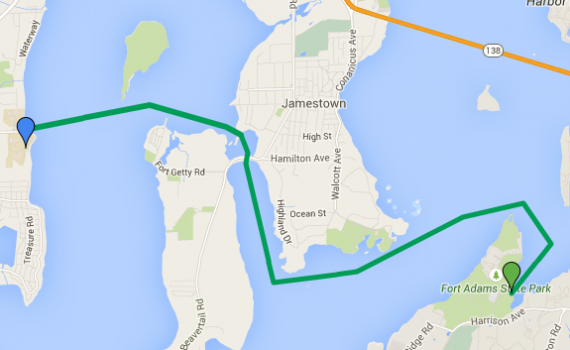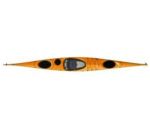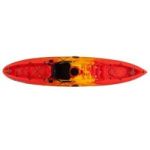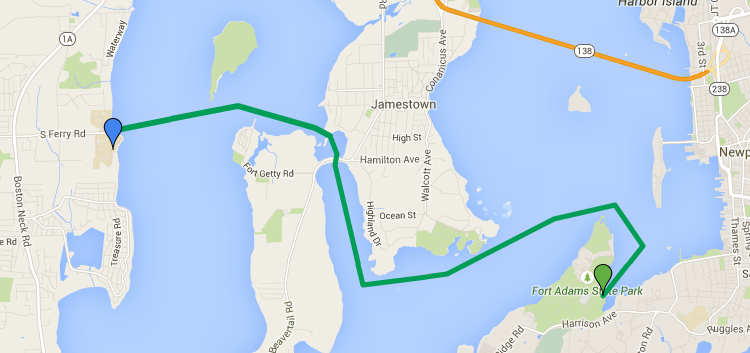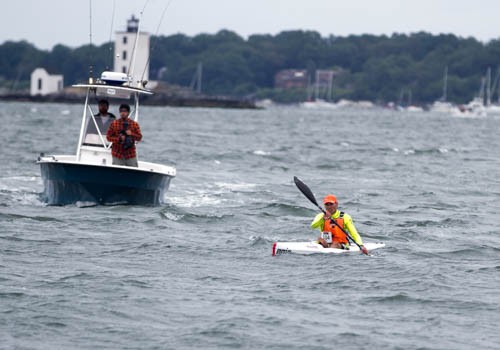
Choosing a Kayak with Tim Dwyer
The Race the State Kayak Leg traverses Narragansett Bay and while at 5.6 miles it’s length is not exorbitant, it does require you to be adept at understanding tides and ocean kayaking.
Tim Dwyer, the kayaker with the overall fastest time in the 2015 Race the State Kayak leg (with a time of 1:01:25.4) has teamed up with us to give our racers tips to prepare them for the 2017 5.6 mile kayak leg!
Below Tim goes over how to choose and set up your kayak. Don’t forget, the Kayak Centre of RI is one of multiple companies offering race day rentals, click here for more information on equipment rentals.
Boat/paddle–Selection and setup
- Boat length: 14’ is a minimum to be out in the open water of the bay. 16’–18’ is the length of most open water sea kayaks and that would be adequate. Most surfskis range from 17’-21’ and are the fastest craft on the ocean for any conditions.
- Beam: 24” or less if possible with 20”-22” good for most with skis often 17”—20” wide
- Weight: poly boats are usually heavier, fiberglass boats stiffer and carbon/kevlar surfskis usually under 30 lbs.
- Paddle: go with the lightest quality paddle you can get. Plastic blades are usually heavy and of lower quality and design. Composite blades are usually better with carbon being the lightest and carbon “wing” paddles are extremely light and efficient.
- Boat setup: there are huge variations in boat cockpits and individual boat setup is beyond the scope of this writing. Some have solid foot pegs, some have foot pedals used to steer a rudder. The best have pedals that are solid on the lower half for leg drive and the upper pedal moves to steer a rudder. You want to generate leg drive that engages your core. This allows you to use your arms less. Leg drive + core engagement = efficient propulsion + greater speed.
- Spray skirt/bilge pump: It is essential to have both for kayaks with cockpits. Some kayak rentals did not provide spray skirts for some reason which makes little sense since boats can take on water and swamp in conditions. Sit on tops or surfskis don’t need sprayskirt or pumps because any water that gets in drains out automatically.
As an outdoor guide and instructor, Tim sailed with Outward Bound and led kayak trips in New England and the Pacific Northwest, Florida and Alaska. For a fundraising effort Tim paddled 300 miles around Long Island for the Memory Paddle Challenge in a record setting passage. He has earned a number of national and regional Championships including the 2002 USCA National Kayaking Championship, the New England 2010 Surfski (kayak) Championship and the Paddle the Bay Kayak Racing series from 2002-2006. Tim completed the Kayak leg of 2015 Race the State finishing first overall in the kayak along with first place on Team Kettlebottom in the 4 person relay. Tim is a child psychologist and lives with his family in Jamestown, RI and consults for Epic Kayaks.

